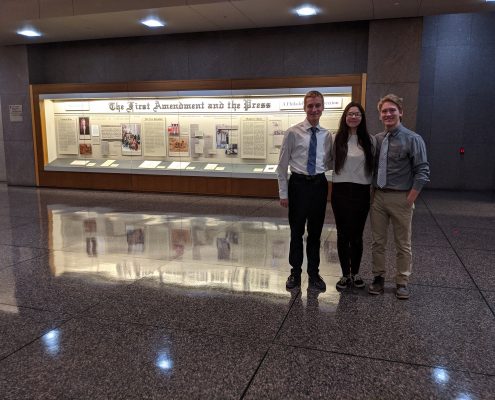Posts

Time, Place and Manner Restrictions on the First Amendment
First Amendment, Lawsuit, Updates
In previous posts, we have discussed the importance of the First Amendment. We have also discussed that speech is not always just speech — it can also be conduct. Today, we are going to talk about legitimate government restrictions on the…

Oley Valley Students Settle First Amendment Lawsuit
First Amendment, Lawsuit, Updates
Every American has the right to free speech under the First Amendment. That's why Cornerstone Law Firm is glad to announce that our clients, three students in the Oley Valley School District, have had their voices heard in their recently settled…
